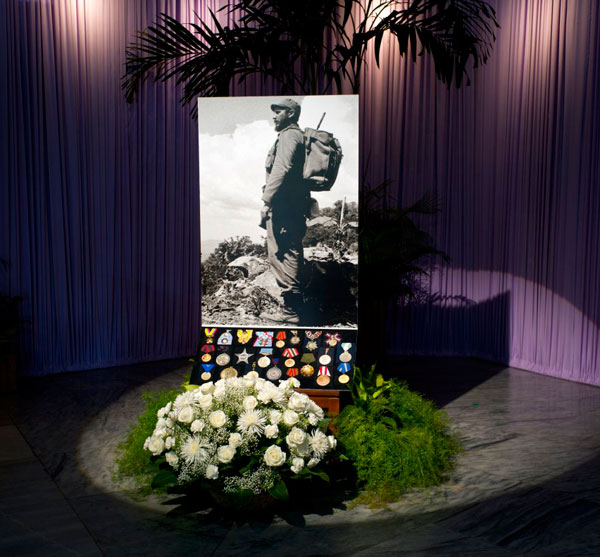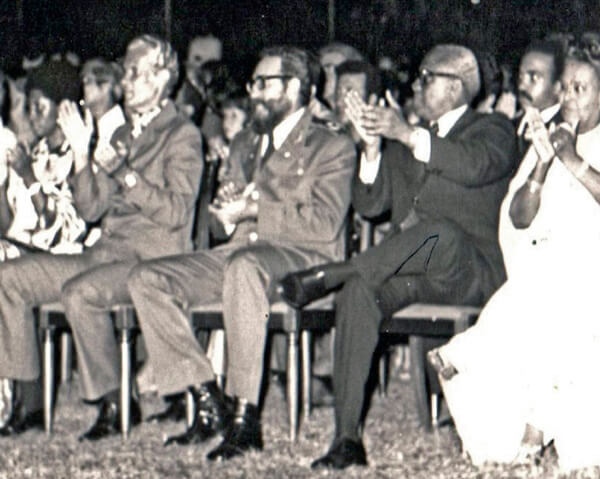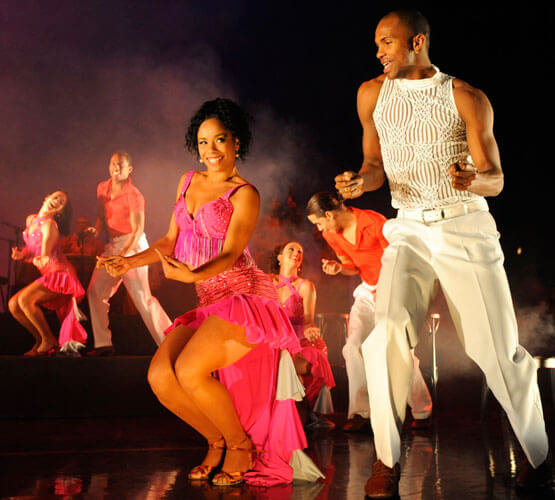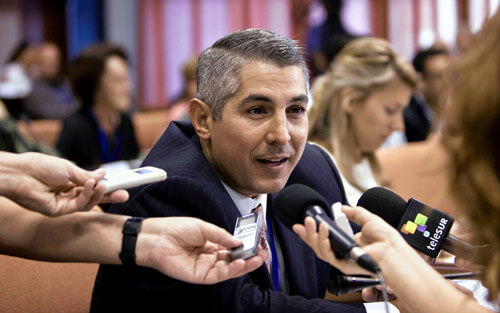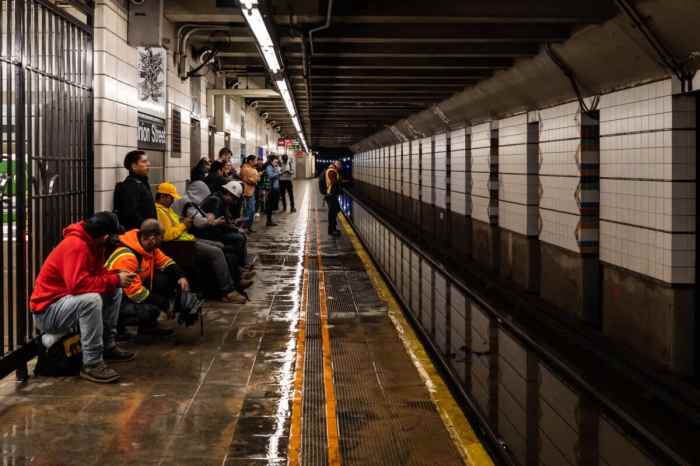GEORGETOWN, Guyana – Grateful for the material and other assistance the region got from Cuba in recent decades, Caribbean leaders rushed to Havana this week to participate in ceremonies relating to the death of Fidel Castro who is perhaps the best known political brand to have emerged from the region in the past century.
Jamaican Prime Minister Andrew Holness, colleagues Moses Nagamootoo from Guyana, Gaston Browne of Antigua and President Desi Bouterse from Suriname were among those who hopped on planes bound for Cuba to register their presence at a service honoring Castro on Tuesday night.
Some also had plans to stay on for the remainder of the week to attend services and ceremonies linked to the burial of the urn with his cremated ashes in the eastern Province of Santiago de Cuba where the revolution started.
CARICOM Chairman Roosevelt Skerrit also made the trip alongside heads from Bolivia, Mexico, Venezuela, Panama, Ecuador and Zimbabwe. Former Jamaican Prime Minister Portia Simpson Miller whose People’s National Party administration had cultivated dangerously close relations with Cuba in the 70s and early 80s, angering the United States also led a PNP delegation to Cuba.
Washington made no secret of the fact that it had played a significant role in undermining the Michael Manley administration on the island and helped to supply guns to political gangs, which had terrorized the country during the period of its now abandoned socialist experiment.
Cuba and CARICOM countries have a special bond dating back to a stroke of political genius by prime ministers Forbes Burnham of Guyana, Manley of Jamaica, Eric Williams of Trinidad and Errol Barrow of Barbados.
In early December 1972, the four sprang a monumental political surprise on the world when they used political stealth to officially establish diplomatic relations with Cuba, largely ending the island’s American-imposed and policed hemispheric isolation. The move opened the floodgates to a rash of other nations to follow suit and prevented Washington from checkmating it because of the secrecy that led up to the announcement.
Cubans celebrated the move. To this day, successive generations of leaders have recorded their appreciation of the recognition and have ensured Cuba remains engaged in regional affairs.
Castro died last Friday at age 90, less than two weeks before the two sides would have celebrated 44 years of unbroken relations on Dec. 8.
Part of the reason for the strong bond between Cuba and the group of 15 nations has to do with the exchange of material assistance between the two over the decades.
For example, thousands of Caribbean students including doctors, engineers, pilots and medical technicians read for free degrees at Cuban universities while Cuba has sent thousands of doctors and support staff to work at hospitals and clinics in a slew of Caribbean nations since the mid 1970s. Skerrit pointed to that fact in a tribute hour after Castro had passed.
“He generously shared his country’s expertise with other developing countries and CARICOM member states have benefited significantly, and continue to do so, from Cuba’s contribution to their development. In recognition of his role in that regard, the CARICOM heads of government bestowed an honorary Order of the Caribbean Community on President Castro, the only such honor granted to a non-CARICOM citizen, “His commitment to social justice and dignity for all people earned him global recognition and a stature as one of the influential world leaders of his time.”
Castro made it a point to visit several of the larger member states from the 1970s to the 90s including Guyana, Jamaica, Trinidad and Barbados, attending international summits and signing bilateral agreements with various governments. He also spent time in Grenada, which the United States had invaded back in 1983 to shut down growing relations between the island and Cuba and other leftist countries.
But many in the region also remember him and Cuba for its contribution to the African liberation struggle in the 70s and 80s.
At least 5,000 Cuban troops died on African battlefields, about half of them in Angola. Others beat back white South African troops fighting to maintain the apartheid system, while others have fought alongside troops in Algeria, Guinea, Guinea Bissau, Equatorial Guinea, Sierra Leone and Libya.
Guyanese in particular remembered the fact that the Burnham government in Guyana had allowed Cuban military planes flying to Africa to refuel at the local airport during months of late night clandestine operations. No one one has apologized for facilitating the Cubans, calling it a just and righteous cause.



